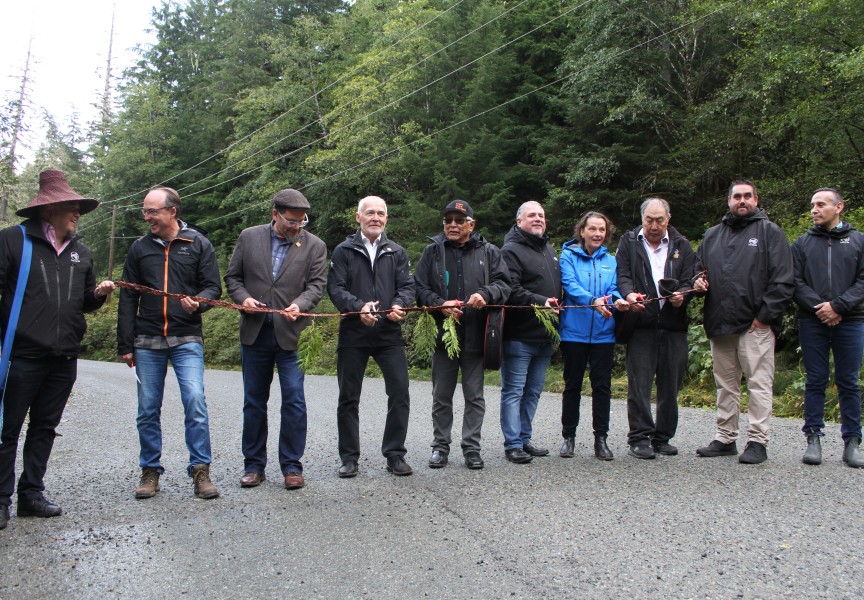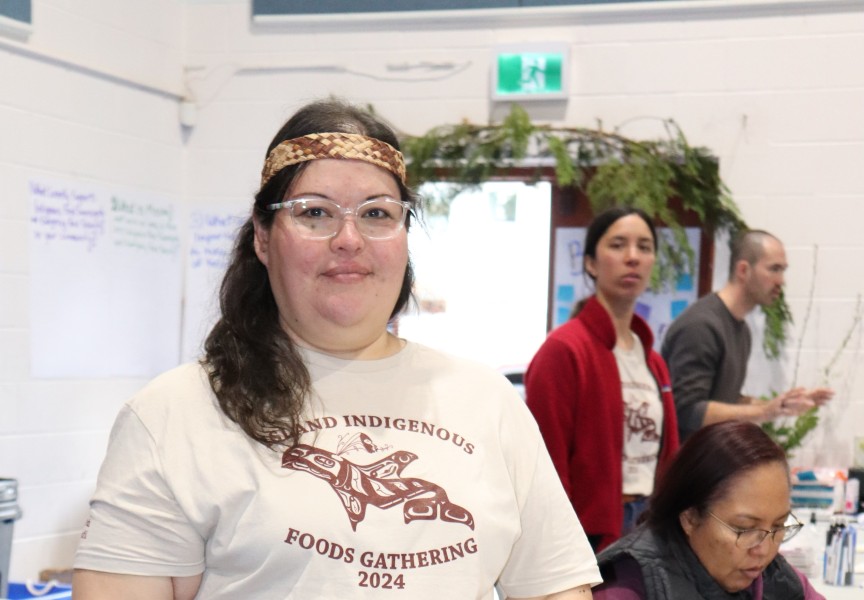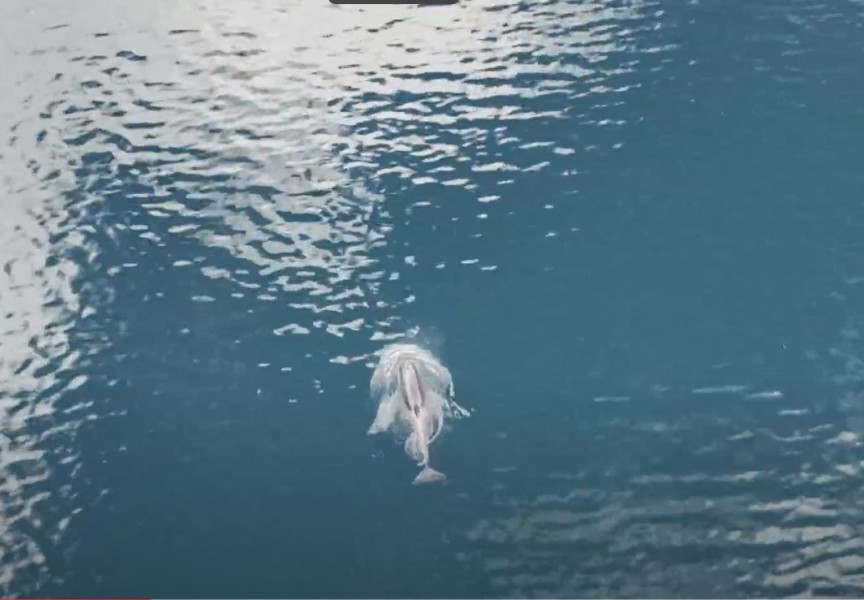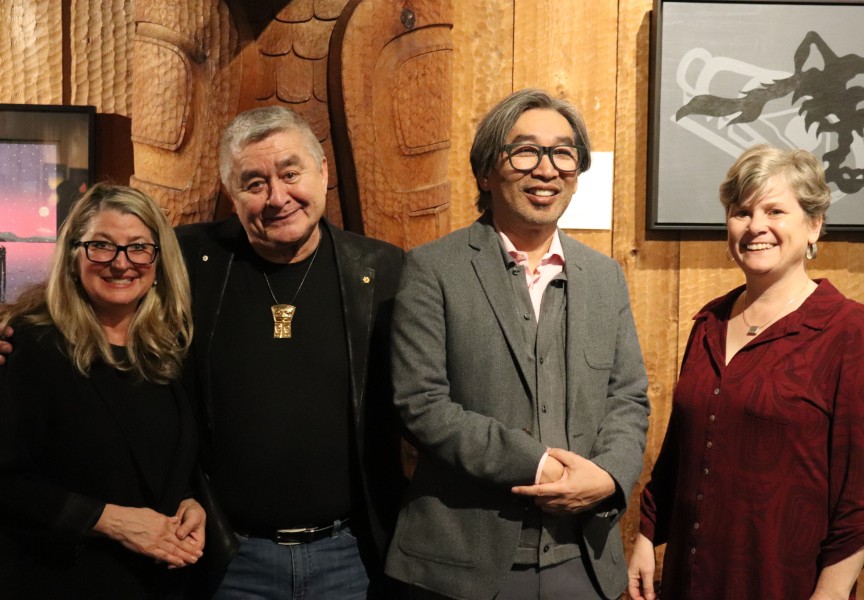“She was a person…” said a heartbroken relative of 18 year-old Jocelyn George, who died of heart failure after spending a night in custody at the Port Alberni RCMP detachment in the summer of 2016. The family of Jocelyn George asked that their names be withheld and communicated to Ha-Shilth-Sa through their designated spokesman, elected Hesquiaht Chief Richard Lucas.
“Regardless of the disease and the reasons why she was in the cell there was no reason to neglect her, especially by ignorant, untrained personnel with no health care experience,” said the relative.
In the early morning hours of June 23, Jocelyn George, a young Hesquiaht/Ahousaht, mother was taken into custody for being intoxicated in a public place. She was released later that day only to return less than two hours later after a relative contacted police, concerned for George’s safety.
According to the IIO (Independent Investigations Office of British Columbia) report findings, George was intoxicated and unable to care for herself at the time.
The relative was aware of George’s drug use and noted that the young woman did not look well. She was shivering and her lips were blue. Paramedics were called for a wellness check. They subsequently cleared and released her to the RCMP, who placed her in cells at about 6:30 that evening.
The IIO report indicates that George hadn’t eaten in two days and officers were advised to ‘push food and fluid’ but none was delivered to her until the following morning. George had a sink in her cell and appears to have taken a drink from the faucet at least once during the night.
George stayed alone in the cell all night where officers observed her moving about her cell sporadically on CCTV (closed circuit television). One guard checked on her periodically through the door but no one entered the cell until 7:25 a.m. It was then an officer noted limited response from George and ordered toast and water be delivered to her. By 8:21 a.m. she still hadn’t taken the food or water and she needed help to sit up. The officer became concerned about her health when he saw how dry her mouth was.
At 8:44 a.m. paramedics arrived and determined, based on her low blood pressure, high heart and respiratory rate that George needed to be transported to the hospital. However, she did not respond to treatment and was flown to a hospital in Victoria, where she went into cardiac arrest shortly after 7 p.m.
The cause of death was determined to be myocarditis (inflammation of the heart muscle) due to the toxic effects of drugs.
The family of George is not satisfied with the outcome of the IIO’s findings, released Jan. 12, 2018, that there are no grounds to consider charges against any officers involved in George’s incarceration. They were allowed to review the report privately before it was released to the public.
According to family spokesperson, Richard Lucas, the family feels strongly that this is a case of discrimination based on the lack of care and attention given to a woman barely old enough to be in adult jail. By their own records, officers did not physically check George for several hours at a time nor did they provide food and water the night before, as directed by other staff.
While it is RCMP policy that prisoners be checked every four hours, George was not physically checked for about 13 hours. Records from officers and CCTV (Closed Circuit TV) show that George moved about on her own periodically through the night.
But a close relative believes George was neglected because she was just another drunk Indian, according to Chief Lucas.
He went on to say that George’s late grandfather, Dr. Simon Lucas, was known to remind his kids about their rights under the Canadian Charter of Rights and Freedoms; he would specifically quote Section 15:1: Every individual is equal before and under the law and has the right to the equal protection and equal benefit of the law without discrimination and, in particular, without discrimination based on race, national or ethnic origin, colour, religion, sex, age or mental or physical disability.
“They neglected to provide a meal, they didn’t physically check on her when everyone knew she was intoxicated and now we will never know if things could have been different if those things were done,” said Lucas.
The Nuu-chah-nulth Tribal Council said in a statement dated Feb. 6, 2018, that they are deeply disappointed in the Independent Investigation Office’s decision in the cause of death of Jocelyn George and called for a review of police misconduct towards Indigenous people.
“Police services in Canada are in need of a thorough review of their policies and procedures. This is not the first Nuu-chah-nulth or Indigenous person to die in the custody of the RCMP,” said NTC President Judith Sayers in the prepared statement. She went on to say that this report has failed to bring closure to the family of Jocelyn George, who have been left with unanswered questions. Sayers also stressed that the case highlights a reoccurring issue present in many Indigenous communities across Canada – the unfair and unbalanced treatment of our people by police.
The NTC is calling upon the RCMP to re-evaluate their internal policies regarding the monitoring of persons in custody who are deemed intoxicated. While the RCMP was cleared by the IIO of criminal wrongdoing in the death of Jocelyn George, they say stricter protocols need to be implemented for the prevention of incidents such as this in the future.
“How is it that she was okay in the jail cell but comatose in the ambulance two to three minutes later?” Lucas asked.
The IIO report specifically ruled out George’s minimal food and water intake as a contributing factor in the cause of death. However, her family wonders if she had been checked regularly as required by policy someone would have noticed her declining health sooner. This is something the grieving family may never know.
“She was a beautiful, generous soul (who) would not hurt a soul,” said a grieving relative. She was also a daughter, a sister, a mother, a granddaughter, a niece and a friend to many.
Lucas says the family has been told by the IIO that there will be a coroner’s inquest into the case. Through the inquest, according to Lucas, the IIO said the family may raise their concerns about how George was treated in cells.
Under the BC Coroner’s Act, an inquest is mandatory if the deceased was in the care or control of a police officer or in a police lock-up at the time of their death. The purpose of the inquest is to gather facts about the circumstances surrounding a death.
An inquest is a formal court proceeding with a five member jury that hears evidence from witnesses under subpoena in order to determine the facts of the death and with a view to prevent similar deaths in the future. The presiding coroner is responsible to ensure the jury maintains the goal of fact finding, not fault finding.
“They are pinning their hopes on the inquiry, that this can change how First Nations are handled in custody,” said Chief Lucas.







